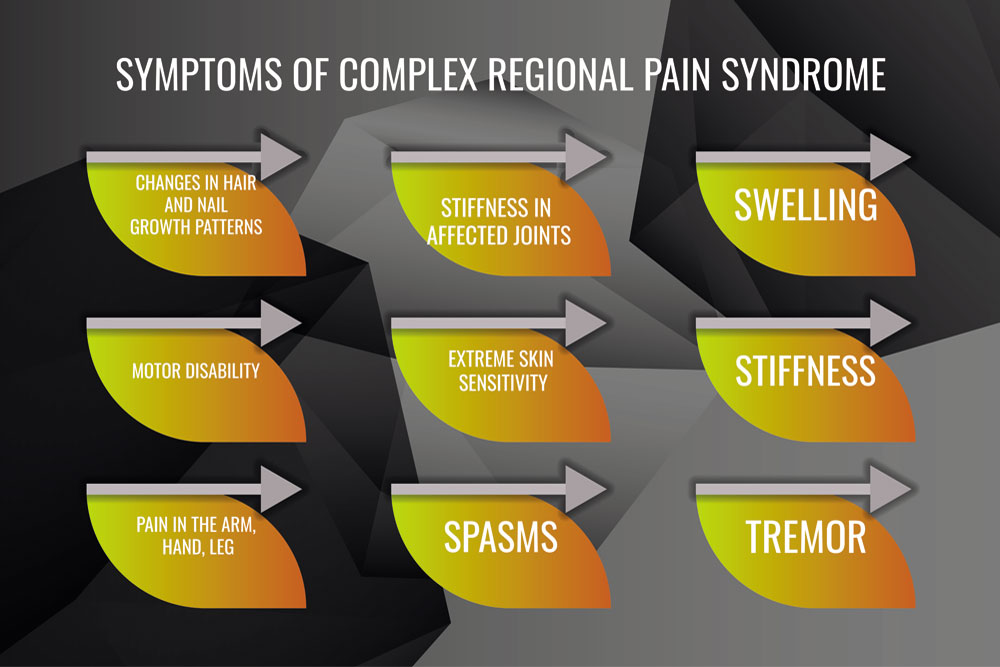Table of Contents
Understanding Complex Regional Pain Syndrome (CRPS) and Reflex Sympathetic Dystrophy (RSD)
Complex regional pain syndrome (CRPS), previously called reflex sympathetic dystrophy (RSD), is a severe chronic pain condition that can develop after an injury, illness, or surgery. Even minor injuries can lead to CRPS/RSD, and its symptoms may be much worse than the original injury, seeming out of proportion to the initial cause.
How Is Disability Due to CRPS/RSD Established?
CRPS/RSD lacks specific diagnostic tests, which can make a diagnosis challenging. However, it is often confirmed through clinical signs like swelling at the injury site, changes in skin color, texture, or temperature, and abnormal hair growth. Since CRPS/RSD is difficult to diagnose, it is not unusual for disability insurance companies to refute or deny claims involving it. However, The Social Security Administration’s guidance memorandum on evaluating CRPS/RSD for Social Security disability claims also offers useful advice for proving CRPS/RSD disability to private insurance companies.
How Can You Fight a Benefit Denial Involving CRPS/RSD?
If you have a claim involving diagnosed CRPS or RSD that has been denied by your insurance company due to a claimed lack of objective medical evidence or other reason, you may be able to successfully challenge that denial. CRPS/RSD is a chronic illness that may result in permanent disability. Disability insurance aims to offset the income loss that comes with a disability. Just because the insurance company has denied your claim does not mean that you cannot fight back. However, because CRPS/RSD is not easily diagnosed, winning your disability claim can be especially challenging. That is why you need an attorney experienced in and knowledgeable about these claims to assist you.
Patients who suffer from complex regional pain syndrome CRPS/RSD may need to see more than one doctor before the condition is accurately diagnosed. That can often lead to insurance companies accusing claimants of “doctor shopping,” or claiming the illness is psychosomatic. However, although its cause of is unknown, the CRPS/RSD condition is a recognized physical disorder.
How Can an Disability Attorney Experienced in Handling CRPS/RSD Help?
Even though CRPS/RSD is difficult to diagnose since it cannot be seen on an x-ray or MRI and does not have specific characteristics that appear in blood tests, a doctor experienced in treating CRPS such as a neurologist, rheumatologist, or pain specialist should be consulted. Convincing a disability insurance company that someone is disabled will also likely require legal assistance from an attorney experienced in handling CRPS/RSD claims who can assist in gathering critical evidence needed to prove disability. Such evidence includes assistance in obtaining:
- Medical opinions that document observable clinical manifestations of CRPS/RSD.
- Medical opinions that correlate symptoms to functional limitations such as the inability to concentrate and maintain attention due to pain or to perform certain activities of daily living as compared to functional status prior to the onset of disability.
- Observations from other medical professionals, such as nurses, physical therapists, occupational therapists, and psychotherapists who treat the psychological effects of chronic pain.
- Observations made by lay observers such as family members, close friends, or co-workers.
- Contemporaneous diaries or logs kept by the claimant which document pain and other symptoms over time.
Who Can You Turn to For Assistance in Fighting a Disability Benefit Denial Involving CRPS/RSD?
An attorney with experience in CRPS/RSD claims can challenge an unfair denial or litigate against the insurance company to fight for a fair outcome.







